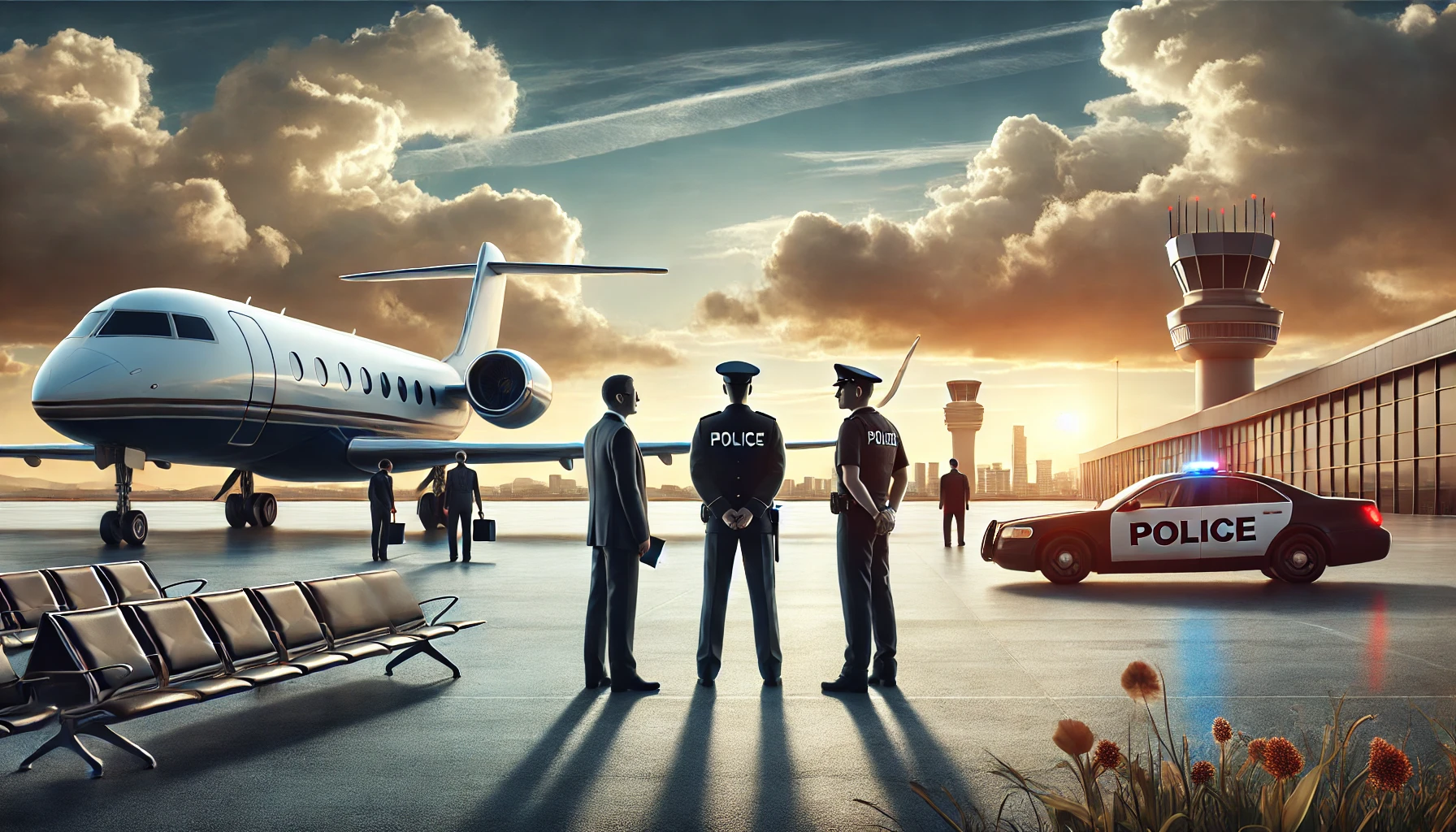Pavel Durov, the Russian-born billionaire and founder of the messaging app Telegram, was arrested in France last Saturday. Durov, who also co-founded VKontakte (VK), a popular Russian social network, has long been a prominent figure in the tech world. He created Telegram in 2013, and the app has since grown to have hundreds of millions of users globally. Telegram is especially popular in Russia and Ukraine but has attracted users from all over the world.
The Arrest and Allegations
Durov was arrested at Le Bourget airport in Paris, where he had landed on his private jet. French prosecutors confirmed that his arrest is part of an ongoing investigation into criminal activities that authorities claim took place on Telegram. These crimes include drug trafficking, child pornography, money laundering, and other illegal transactions. French President Emmanuel Macron assured the public that this arrest had no political motives and emphasized that it was part of a lawful investigation.
One of the main accusations is that Durov and his team at Telegram have not done enough to stop illegal activities on the app. Some of the most serious concerns include the spread of child sexual abuse materials and the use of Telegram for drug dealing and fraud. The French child protection agency OFMIN is behind the investigation and issued the warrant for Durov’s arrest. Authorities are also investigating whether Telegram failed to cooperate with law enforcement in tracking down criminals using the app for illegal purposes.
Telegram and Its Features
Telegram is a messaging app similar to WhatsApp, Signal, and iMessage, but with some key differences. It allows users to send messages, share files, and create group chats. Telegram also features “channels,” where people can broadcast messages to a large audience, and anyone can join to see the posts. Many people like Telegram because of its privacy features and because it allows large groups to communicate. While Telegram encrypts its messages, critics have pointed out that this encryption is not always end-to-end, meaning that Telegram itself can still access some messages. This has caused controversy, especially when it comes to cooperating with law enforcement.
Over the years, Telegram has attracted users who have been banned from other platforms, including cryptocurrency advocates, conspiracy theorists, and extremist groups. This is part of the reason why authorities are concerned about how Telegram is used.

Durov’s Background and Response
Pavel Durov is often compared to Facebook’s Mark Zuckerberg and is sometimes called the “Russian Zuckerberg.” He founded VKontakte, which was similar to Facebook, but had to flee Russia in 2014 after refusing to give Russian authorities the personal data of VK users. After leaving Russia, he gained citizenship in France and the United Arab Emirates. Durov is known for his strong stance on privacy and free speech, which is one reason why he has allowed Telegram to operate with minimal restrictions. He is also known for his fitness lifestyle, often sharing photos of his athletic physique on social media.
Durov has insisted that Telegram abides by European Union laws and follows industry standards for content moderation. In a statement, Telegram said, “It is absurd to claim that a platform or its owner are responsible for abuse of that platform.” The company stressed that Durov has “nothing to hide” and that he travels frequently within Europe.
Reactions to the Arrest
The news of Durov’s arrest has sparked mixed reactions around the world. Some people, especially those who strongly believe in free speech, were outraged by the arrest. Elon Musk, the billionaire owner of X (formerly Twitter), expressed his support for Durov by tweeting “#FreePavel” and criticizing what he saw as an attack on free speech in Europe. Russia’s government has also reacted strongly, with officials demanding an explanation for the arrest and calling for Durov’s rights to be protected.
Others, however, have pointed out that tech companies have a responsibility to prevent their platforms from being used for illegal purposes. Critics argue that Telegram has not done enough to stop criminals from using the app. They say that companies like Telegram should cooperate more with law enforcement to prevent harmful activities, such as child exploitation and drug trafficking.
The Ongoing Investigation
As of now, Durov remains in custody in France while the investigation continues. He could be held for up to four days before authorities decide on the next steps. The investigation is being led by France’s cybercrime unit and the national anti-fraud police, and it has drawn international attention. Although the specific charges are still being worked out, the arrest marks a significant moment in the ongoing debate about how much responsibility tech companies should have over the content shared on their platforms.
This case has also raised concerns about privacy and security on messaging apps. Some experts believe that the arrest could push other tech companies to adopt stronger encryption methods, such as end-to-end encryption, to protect themselves from being held liable for the actions of their users.
For now, the future of Telegram and its role in the global tech landscape remains uncertain as authorities look deeper into the allegations against Durov and his platform.
This article is based on the following articles:

Background Information
1. What is Telegram?
Telegram is a messaging app that people use to send messages, share pictures and videos, and create group chats. It’s similar to other messaging apps like WhatsApp, iMessage, and Signal, which many people use on their phones to communicate with friends and family. However, Telegram has some unique features. For example, it allows users to create huge group chats with thousands of people and broadcast messages to large audiences using “channels.” Because of these features, Telegram is popular not only for personal communication but also for sharing information with large groups.
2. The Role of Encryption
Encryption is a way to protect information by converting it into a code that only authorized people can read. When you send a message using an app like Telegram, encryption helps make sure that only the person you’re messaging can see what you’ve written. Many messaging apps use something called “end-to-end encryption,” which means that not even the company running the app can read your messages. However, Telegram works a little differently. While it does use encryption, not all conversations are encrypted in this “end-to-end” way unless users specifically turn on a feature called “secret chats.” This is important because it means Telegram can sometimes see the messages, and that’s why authorities believe it should help them when investigating crimes that happen on the app.
3. Why is Internet Privacy Important?
Internet privacy is all about keeping personal information safe and secure when people use the internet. Many people use apps like Telegram because they want to communicate privately without anyone—whether it’s the government, companies, or hackers—being able to see what they’re saying. Pavel Durov, Telegram’s founder, believes very strongly in privacy, which is why Telegram doesn’t have as many restrictions as other social media platforms. However, this commitment to privacy can sometimes create problems when criminals use the app to hide illegal activities, such as drug dealing or sharing harmful content like child pornography.
4. How Do Governments Deal with Illegal Activities Online?
Governments around the world are responsible for protecting their citizens and enforcing laws. When illegal activities like drug trafficking or child exploitation happen online, law enforcement agencies try to find the people responsible. One way they do this is by asking tech companies, like Telegram, to provide information that could help identify criminals. For example, if the police know that someone is using Telegram to commit a crime, they might ask the company to hand over messages or data that could help catch that person. In some cases, companies are required by law to cooperate with these investigations, but not all companies agree to do this, especially if they believe in strong privacy protections.
5. What Are the Responsibilities of Tech Companies?
Tech companies like Telegram, Facebook, or YouTube create platforms that allow people to connect and share information. While these platforms can be used for good things—like staying in touch with friends or learning new things—they can also be misused by people who want to commit crimes or share harmful content. This is why many people believe tech companies should take responsibility for what happens on their platforms. This could mean removing harmful content, blocking illegal activities, or cooperating with law enforcement when needed. However, there is also a debate about how much responsibility tech companies should have, especially when it comes to privacy and free speech.
6. What is Free Speech?
Free speech is the idea that people should be allowed to express their opinions and share information without being censored by the government or other authorities. It is an important right in many countries, including the United States and much of Europe. However, free speech is not unlimited. For example, you can’t use free speech to spread harmful or illegal content, such as promoting violence or sharing child pornography. When it comes to platforms like Telegram, people often debate how much free speech should be allowed and whether companies should step in to remove harmful content, even if it means restricting some people’s freedom to express themselves.
7. The Impact of Social Media on Society
Social media platforms like Telegram, Facebook, and Twitter have become a big part of our daily lives. People use these platforms to communicate, get news, and share ideas. However, social media also comes with challenges. For example, it can be difficult to control what people post, which means that harmful content can spread quickly. This is why governments and tech companies are working to find ways to make social media safer for everyone, while still protecting people’s rights to privacy and free speech.
8. The Role of Billionaires in Tech
In the tech world, people like Pavel Durov, Mark Zuckerberg (the founder of Facebook), and Elon Musk (the owner of X, formerly Twitter) are seen as powerful figures. They control companies that shape how people communicate and interact online. These tech billionaires often influence major global discussions about privacy, free speech, and regulation. For example, Elon Musk has become a vocal supporter of free speech, which is why he defended Pavel Durov after his arrest. However, with this influence comes responsibility, and tech leaders are often asked to balance their beliefs with the safety and well-being of their users.
9. Why This Matters to You
Understanding what happens on the internet and how it affects real life is important for everyone, including students. Apps like Telegram are used by millions of people every day, and the decisions made by tech companies can affect how we communicate, how safe we feel online, and what information we can access. As technology continues to evolve, so do the laws and rules that try to keep us safe while protecting our rights. Knowing about these issues can help you make better decisions about how you use technology in your own life.

Debate/Essay Questions
- Should tech companies like Telegram be held legally responsible for the illegal activities that occur on their platforms, even if they claim to support free speech?
- Is it more important to protect personal privacy online, or should tech companies prioritize cooperating with law enforcement to prevent crimes like drug trafficking and child exploitation?
- Should governments have the right to demand that encrypted messages be shared with law enforcement if there is suspicion of illegal activity?
- Is the arrest of Pavel Durov justified as part of a criminal investigation, or is it an overreach that could set a dangerous precedent for tech company leaders worldwide?
- Can platforms like Telegram be effectively regulated without infringing on the privacy and rights of their users, or is some level of government intervention inevitable?
Please subscribe to Insight Fortnight, our biweekly newsletter!
